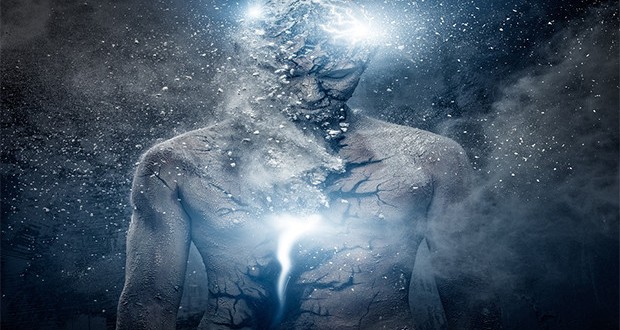“And in those days shall men seek death, and shall not find it; and shall desire to die, and death shall flee from them.” Rev 9:6
An interesting article posted on The Atlantic.
The danger of uploading one’s consciousness to a computer without a suicide switch
The Atlantic | May 28, 2015
Imagine a supercomputer so advanced that it could hold the contents of a human brain. The Google engineer Ray Kurzweil famously believes that this will be possible by 2045. Organized technologists are seeking to transfer human personalities to non-biological carriers, “extending life, including to the point of immortality.” My gut says that they’ll never get there. But say I’m wrong. Were it possible, would you upload the contents of your brain to a computer before death, extending your conscious moments on this earth indefinitely? Or would you die as your ancestors did, passing into nothingness or an unknown beyond human comprehension?
The promise of a radically extended lifespan, or even immortality, would tempt many. But it seems to me that they’d be risking something very much like hell on earth.
Their descendants might damn them to it.
* * *
Let us begin by noticing that justice, as most people presently conceive it, permits or even requires that at least some crimes be punished as far after the fact as is now possible. Take Hans Lipschis, who had far-exceeded his life expectancy by 2013, when the 93-year-old made headlines. He was living in southwestern Germany at the time. Police arrested him there. Prosecutors wanted to charge him with murders perpetrated seven decades prior. He had served as a guard at Auschwitz.
With the consciousness of Adolf Hitler in our possession, 6 million years of disembodied punishment would still constitute just one year for every murdered Jew.
Yet Ghengis Khan, who perpetrated all manner of atrocity less than a millenia ago, would inspire some sympathy, I think, if it were discovered that his contemporaries had imprisoned his consciousness upon his death as punishment for mass murder. Were he discovered in mental chains after eight centuries of suffering, there would be demands for his release and debates about applying morality across time. And utilitarians would debate the consequences of his military victories across the centuries. Perhaps he’d be freed due to his unfathomably long punishment and the fact that his victims seem so remote to us. Or maybe he’d be forgotten in prison, as is done to so many individuals in our existing system.
These are wild thought experiments, but with them I only mean to illustrate a narrow point: Radical life extension would so scramble and confound our normal notions of justice that there’s no telling how future Americans would react to the new reality. Historic monsters might be punished for 6 million years … or just three or four times longer than a 150-year sentence a U.S. court imposed on this obscure money-launderer. It’s hard to speculate even when confining ourselves to descendants of ours, in this country, with moral codes closely resembling our own.
In fact, it isn’t clear how we’d react right now.
If today’s Americans magically took custody of servers containing the disembodied consciousnesses of every figure ever mentioned in the country’s newspapers, going back to the beginning, would we stop at punishing former Nazi leaders? Would there be a protest movement to hold Native American killers and slaveholders accountable? What about the folks behind the Tuskegee syphilis experiment? Or the city leaders of towns in the Jim Crow South that subjugated blacks?
Maybe everyone in the fossil-fuel era will be condemned to punishments corresponding in length to the years of destruction that we wrought on a fragile planet.
Perhaps people who had abortions, or people who bore more than two children, will find themselves in disfavor. Perhaps an ISIS-like brand of sharia law will prevail, and most everyone who uploaded their consciousness in the West will be tortured for a millennia, until the course of history changes and new rulers take control.
Of course, it’s possible that future generations will be less punitive than I imagine. But will that last forever? In any case, humans will be forced to make a decision about whether to upload their consciousnesses before knowing what the far future holds.
Admittedly, the living don’t know the near future even today.
Nuclear war could come tomorrow. Those of us who survive it might spend the rest of our days in misery. But that misery would be relatively short. Radical life extension via mind uploads would seem to risk inconceivably long, possibly endless misery. And this holds even if no future generation deliberately inflicts that misery.
It’s hard to imagine a civilization of highly adept network administrators who manage, century after century, to maintain uncorrupted data and functioning equipment.
But maybe they’ll excel.
So let us imagine inconceivably durable hardware that holds a human consciousness. This computer is attached to a generator that runs off of nuclear waste as it decays. Thus it is deep in a vault in the earth, but attached to the rest of humanity via cables. For 100 years, the disembodied mind revels in all she can explore: the sum of human knowledge; every other uploaded consciousness; and this universe of diverting data just keeps expanding with every day.
Then a super-volcano explodes.
All embodied human life is extinguished. Most disembodied life is destroyed too. But not the computer deep in the bunker of nuclear waste. Its connections to other computers have been severed. But the consciousness endures with nothing stored locally save the original upload and McAfee anti-virus software that no one could figure out how to uninstall. As time wears on, this human endures the long twilight of the species on earth: 15.7 million years imprisoned with herself until the Iodine-I29 powering her computer is exhausted. As they say, “What a way to go!”
Strange as it may seem, the most important hedge for those seeking immortality just might be declining radical life extension unless they’re assured a suicide switch.










![BLIND HORIZONS, BROKEN HEARTS… [some thoughts on 2021, and beyond]](https://christianobserver.net/wp-content/uploads/2022/02/space-oddysey-150x150.jpg)


